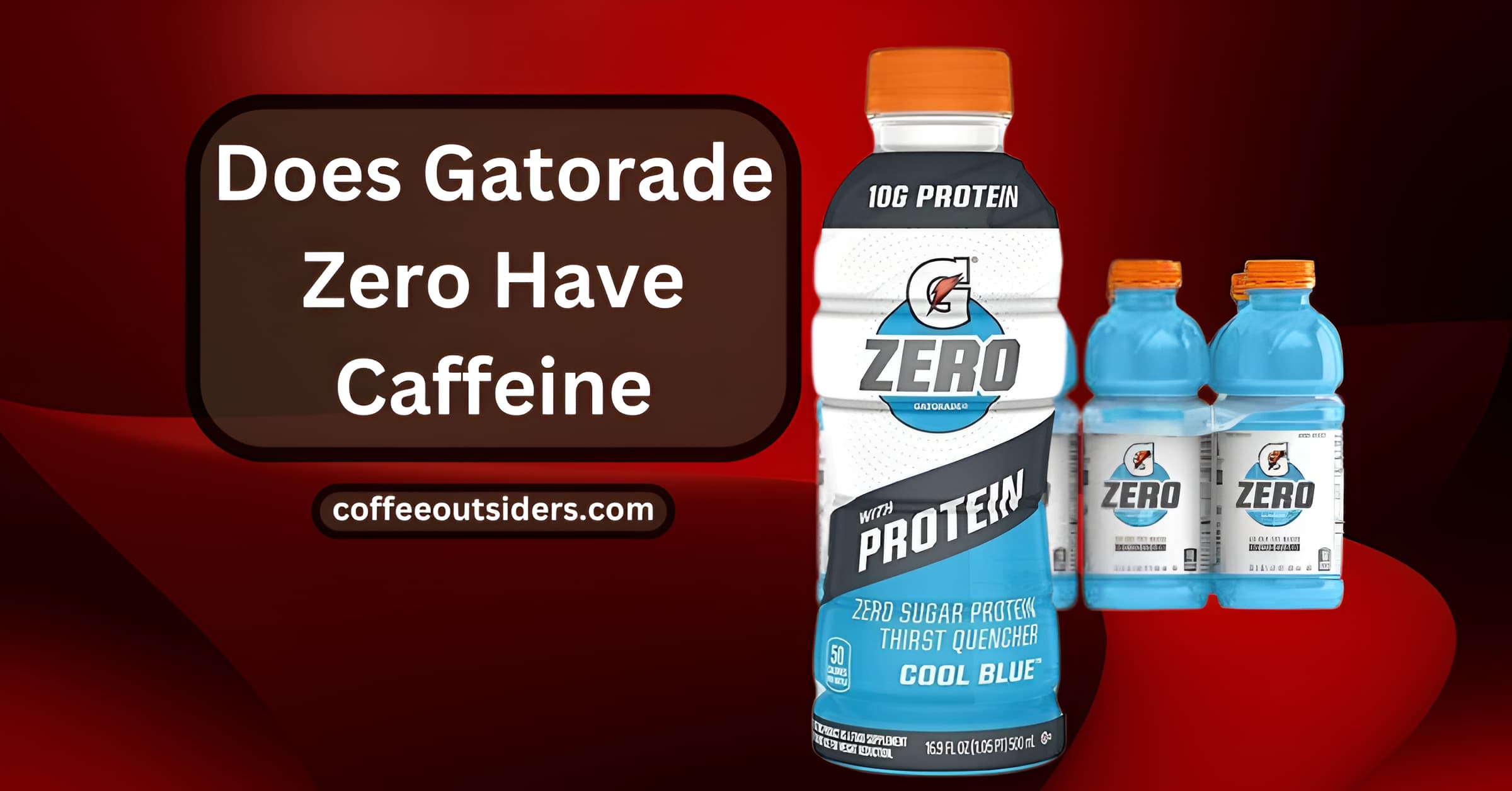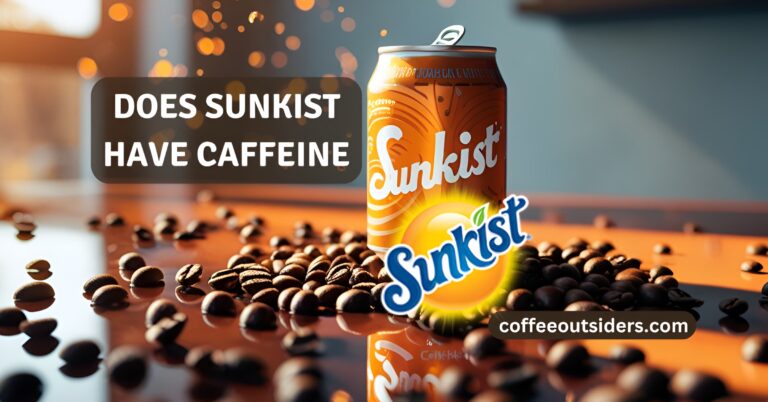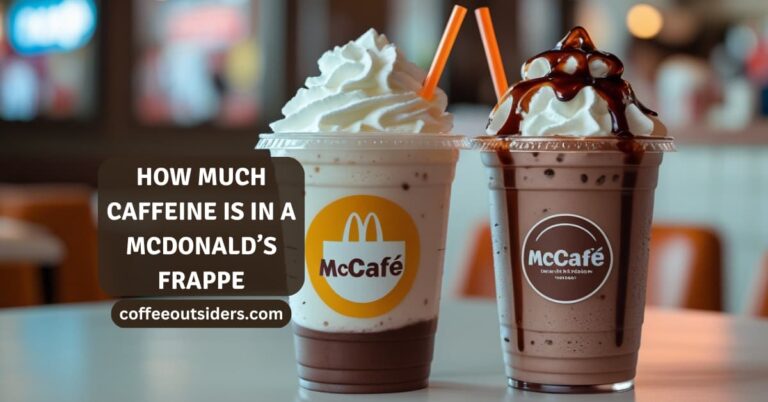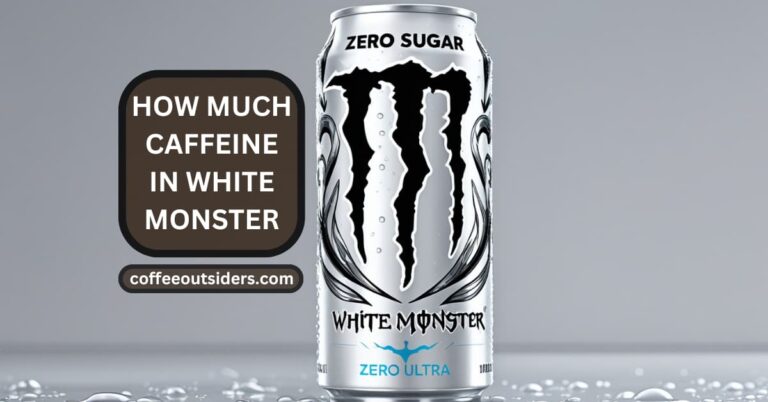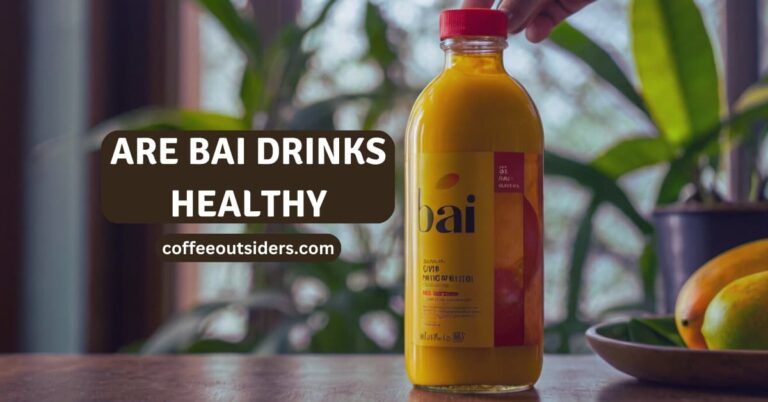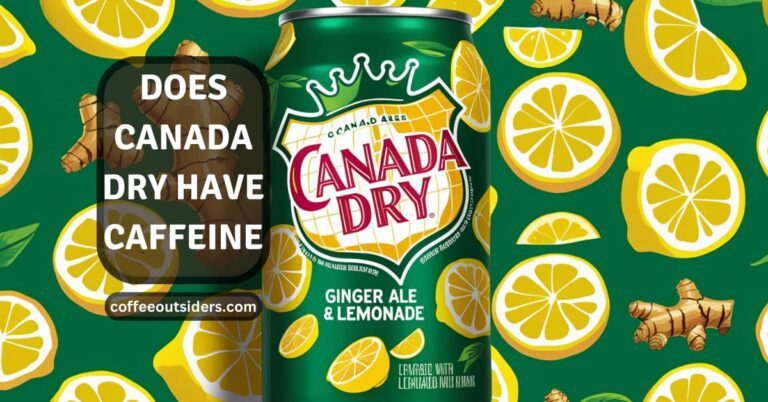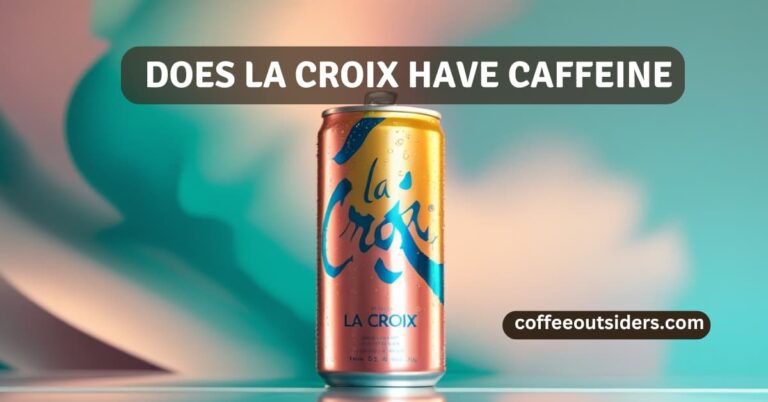Does Gatorade Zero Have Caffeine? Here’s What I Discovered
Gatorade Zero does contain caffeine. We wanted G ZERO to be a hydration-focused drink that could replenish electrolytes without adding sugar or stimulants.
The formula features sodium and potassium to replenish key electrolytes lost in sweat and support optimal hydration during physical activity. This makes it an ideal choice for anyone who wants to hydrate without added calories or caffeine.
Plus, it’s available in tons of great-tasting flavors. It makes the ideal workout partner and everyday hydration companion. This refreshing, low-calorie sports beverage.
- Does Gatorade Zero have caffeine We’ve got good news. Gatorade Zero has zero caffeine. This makes it a good hydration option for all ages, including those who are sensitive to stimulants.
- As a reminder, always check beverage labels to verify caffeine content and make sure the product fits individual health and hydration needs.
- Gatorade Zero still delivers the electrolytes your body craves–sodium and potassium–to promote hydration and muscle performance without the boost of caffeine.
- Its low-calorie, sugar-free formulation makes it a suitable choice for individuals monitoring calorie or sugar intake during exercise or daily activities.
- Enjoy caffeine free hydration Gatorade Zero might just be your next go-to drink. This will reduce your risk of experiencing negative effects like dehydration, jitters, or interrupted sleep.
- If you need caffeine-free hydration options, flavored waters, coconut water, and DIY electrolyte drinks are all great alternatives.
Does Gatorade Zero Contain Caffeine
Gatorade Zero is unique in that it’s a hydration beverage purposefully developed without caffeine. This makes it an ideal option for anyone looking for an effective hydration solution free from the stimulating effects of caffeine ingestion. In fact, some Gatorade products do have caffeine.
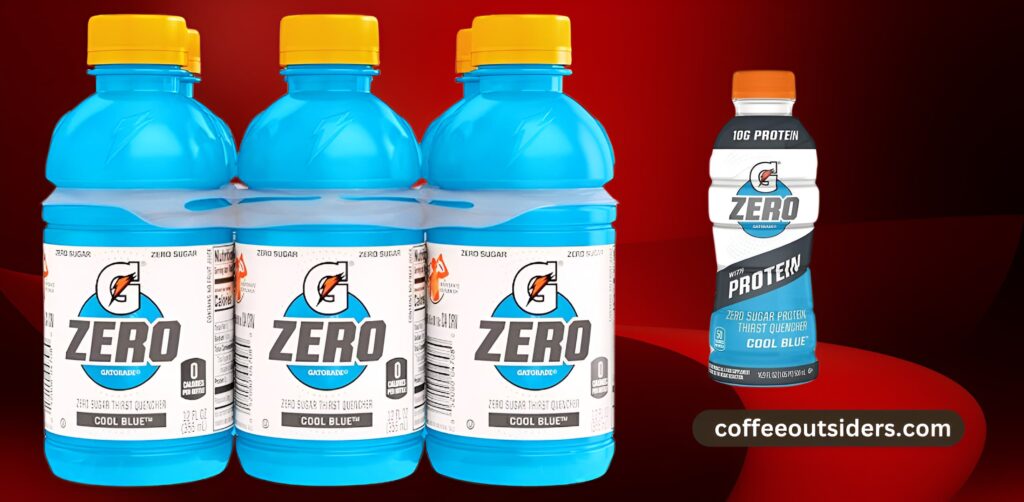
Gatorade Zero takes away that worry, making it an excellent option for all—including those people who are sensitive to stimulants. This choice is primarily for hydration and replenishment. It ensures that those with varying lifestyles and needs can readily access it.
1. Understanding Gatorade Zero’s Ingredients
Gatorade Zero’s formulation is focused on important ingredients that deliver hydration benefits and are designed to deliver flavor. Electrolytes like sodium and potassium are key ingredients in this beverage. These minerals are essential for regulating fluid balance in your body.
This is particularly important during or after exercise when you’re losing electrolytes in sweat. Gatorade Zero helps replenish these key nutrients to keep you hydrated and your muscles working at their best.
The beverage steers clear of sugar and carbohydrates, providing a zero-calorie alternative for individuals who are mindful of their calorie consumption. Rather, it sweetens with non-nutritive sweeteners such as sucralose and acesulfame potassium to provide a consistently delightful flavor experience.
Gatorade Zero pairs natural and artificial flavors to make it delicious and powerful. It offers something for every flavor preference in a health-forward design.
2. Examining the Caffeine-Free Claim
In short, Gatorade Zero was designed to have no caffeine content. This is what makes it so ideal to use as a hydration replenisher—not an energy-boosting beverage. With no caffeine, you can drink it any time of day.
You can enjoy it any time, even before bed, because it won’t impact your sleep or make you jittery or nervous. This makes it a great option for those that are sensitive to caffeine. It particularly helps people who are dealing with anxiety or want to reduce their overall caffeine consumption.
Consumers can trust Gatorade’s commitment to clear ingredient labeling to verify the caffeine-free assertion. The product packaging boldly indicates its caffeine content, allowing potential buyers to easily check its appropriateness.
This level of attention to detail is how trust is built. This makes Gatorade Zero an excellent choice for clean, effective hydration with no unwanted stimulants.
3. Comparing Variants of Gatorade Zero
| Flavor | Calories (per 12 fl oz) | Sodium (mg) | Potassium (mg) |
| Glacier Cherry | 5 | 270 | 70 |
| Orange | 5 | 270 | 70 |
| Lemon-Lime | 5 | 270 | 70 |
| Berry | 5 | 270 | 70 |
Each flavor of Gatorade Zero delivers the same liquid smart energy benefits, like the electrolytes you need and zero calories. Taste is usually a matter of preference.
Glacier Cherry is one of Gatorade Zero’s best-selling flavors due to its crisp and deliciously sweet taste. Lemon-Lime pulls in consumers who enjoy a tart, citrusy refreshing beverage.
These delicious options allow everyone to find their favorite flavor whether it’s a sweet or subtle taste. This added benefit is what makes Gatorade Zero the more versatile and enjoyable option to keep you hydrated.
Effects of Caffeine in Sports Drinks
In sports drinks, caffeine is the second most common ingredient, as most athletic and cognitive performance benefits are linked to caffeine consumption. When used in the right situations, it can deliver huge benefits.
What caffeine does to your body It’s important to know how caffeine works, particularly when you’re consuming it while exercising. This section goes in-depth on caffeine’s performance effects and possible adverse effects. It further acknowledges the advantages of non-caffeinated hydration alternatives, including Gatorade Zero.
1. Impact on Athletic Performance
Caffeine has been clinically proven to improve athletic performance by increasing energy levels and decreasing perceived exertion during exercise. This results in athletes feeling less fatigued and better able to endure strenuous exercise bouts. For many athletes, combining caffeine with a flavorful electrolyte drink, such as a powdered Gatorade, can enhance their performance even further.
In other words, endurance athletes like long-distance runners or cyclists usually experience significant improvements to their performance if they take caffeine prior to their races. Research has clearly established that it significantly enhances endurance performance, especially when paired with an ideal electrolyte solution.
It does this primarily through increasing fatty acid mobilization, which spares muscle glycogen and aids in the delay of fatigue. Yet, the effects of caffeine are very individual dependent.
There’ll be athletes who see positive effects on performance and there’ll be athletes who see no effect or a negative effect. Personal tolerance is key here. Things like genetic predisposition and habitual caffeine intake can intensely influence how your body responds.
For this reason, athletes should test it and find out what’s right for them, while not going beyond what is safe, especially when considering options like Gatorade zero products or other low sugar content beverages for hydration.
2. Potential Side Effects of Caffeine
While caffeine is recognized as one of the most effective ergogenic aids, it does come with certain pitfalls. Common side effects, such as increased heart rate and anxiety, could impair performance during competitions or even in training if consumed excessively. To counterbalance these effects, many athletes turn to electrolyte beverages like Gatorade, which can help with hydration and recovery.
Excessive caffeine consumption may also interfere with sleep, particularly when taken later in the day. Since quality sleep is crucial for recovery, any disturbances can negate the positive effects of training. For quick rehydration, a refreshing sports drink, such as a Gatorade powder mix, can provide essential electrolytes without the drawbacks of caffeine.
Digestive issues can arise as well, as caffeine may irritate the gastrointestinal tract, leading to cramping during exercise. Too much caffeine can induce feelings of jitteriness or anxiety, which hinder focus and coordination, making it vital to balance intake with other hydrating options.
Moderation is essential when consuming caffeine to avoid these side effects. A large coffee, approximately 20 ounces, can contain up to 410mg of caffeine—significantly exceeding the recommended limits. Instead, athletes might benefit from low-calorie options like Gatorade zero products, which offer hydration without the high caffeine content.
3. Benefits of Avoiding Caffeine in Hydration
Caffeine-free hydration provides multiple benefits, especially when it comes to supporting fluid balance during working out. Caffeinated beverages are mild diuretics that can increase dehydration.
Zero-calorie drinks such as Gatorade Zero maintain hydration as effectively as sugary drinks without these dangers. This alternative is ideal for caffeine-sensitive athletes wanting to avoid jitters and anxiety. It’s the perfect solution for kids and anyone who’s caffeine sensitive, too.
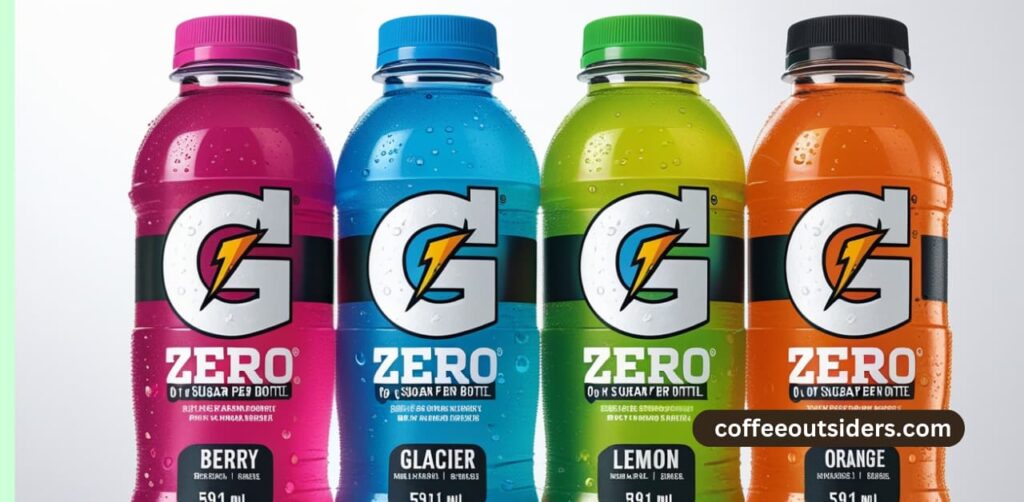
That’s why Gatorade Zero is a particularly impressive choice. Plus, it’s free of caffeine, fat and added sugar, so it’s a healthier choice than many other sports drinks, too! Each serving features 230mg of sodium and just 2 grams of carbs.
Together, this blend provides proven electrolyte replenishment and energy support without extra calories. If you’re concerned about artificial sweeteners, here’s what you need to know. This product contains sucralose and acesulfame K, artificial sweeteners that have been linked in studies to health problems including migraines and changes to the gut microbiome.
Staying hydrated is important to performing at your best. The American Council on Exercise advises you to drink 17 to 20 ounces of water two to three hours before you exercise, plus another 8 ounces in the half hour before exercise.
Gatorade Zero is a great fit for these recommendations. It’s an intelligent solution for consumers looking to hydrate smarter, sans caffeine side effects.
Gatorade Zero Nutritional Overview
Gatorade Zero is specifically designed for the athletes who choose to hydrate, fuel and perform without added sugar or calories. This no sugar addition to the original sports drink is a great way to stay better hydrated. Its innovative, low-calorie formulation makes Gatorade Zero the perfect choice for athletes and fitness-focused consumers who want to hydrate without adding to their dietary needs.
Below, I’ll take you through its nutritional overview and standout features to help you get a better sense of what it brings to the table.
1. Key Nutrients in Gatorade Zero
Gatorade Zero’s formula focuses on electrolytes, especially sodium and potassium, both of which are important for hydration and muscle function. Each serving has 230 milligrams of sodium, just under 10% of the recommended Daily Value. Sodium helps the body retain water during exercise to prevent dehydration and is key in fluid balance.
Potassium has a very important function in helping to support your muscles’ contractions. It contributes to cramping prevention, making it an important nutrient for anyone engaging in rigorous training.
Gatorade Zero does not contain any vitamins or minerals outside of its electrolyte content like traditional sports drinks. This simplicity emphasizes its specific purpose: replenishing lost electrolytes rather than offering a broader nutritional profile.
For additional nutrients, consider combining Gatorade Zero with a balanced meal or snack. That means you can use that combination to help meet your other dietary needs!
2. Calorie and Sugar Content Breakdown
One of the most impressive things about Gatorade Zero is its low-calorie profile. A single serving of Gatorade Zero powdered drink mix has 0g sugar and just 5 calories. While the bottled version is calorie-free, the level of calories depends on serving size. Original Gatorade has as much as 150 calories a bottle—mostly from sugar.
Gatorade Zero takes away added sugar altogether. Rather, it replaces sugar with zero-calorie sweeteners such as sucralose and acesulfame potassium (ACE-K) to provide a bold taste. This zero-calorie option is a great choice for anyone looking to reduce their sugar consumption.
It’s even more helpful for people who have health issues such as diabetes or who want to slim down. By delivering hydration without extra calories or sugar, Gatorade Zero is the perfect complement to a fitness-focused, health-minded lifestyle.
3. Electrolyte Composition Details
Gatorade Zero’s electrolyte makeup is identical to that of original Gatorade, providing the same hydration advantages. Sodium and potassium are the electrolytes you care about. Sodium replaces what you lose in sweat when you exercise and potassium aids in muscle recovery.
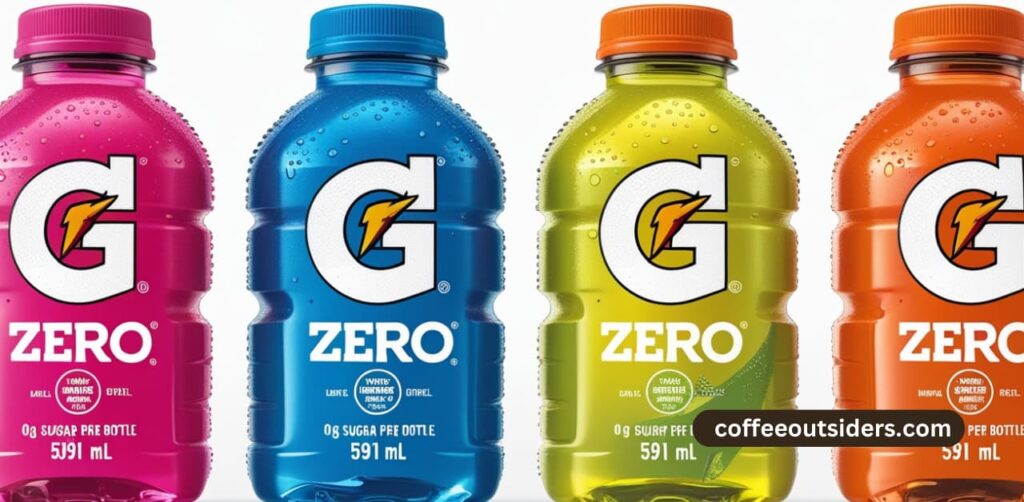
Gatorade Zero features an optimal blend of two key electrolytes to help replace what your body sweat away in the field or on the court. This makes it a great option for post-exercise recovery and keeping you hydrated all day long.
This drink is especially beneficial during activities that produce high levels of sweat like running, cycling, or gym workouts. Our sugar-free formula helps you stay on track with your dietary goals.
Plus, it provides the hydration and electrolyte support you need to keep your energy levels and performance up.
Hydration Options Without Caffeine
It does a great job at keeping you hydrated throughout the day, especially with options like gatorade powder mix that provide essential electrolytes. If you’re looking to reduce your caffeine intake, there are plenty of wonderful alternatives, such as flavorful electrolyte drinks that offer hydration and nutrients without caffeine or other stimulants. Knowing your hydration options can help you find what best suits your lifestyle and health goals.
1. Exploring Natural Hydration Solutions
Natural hydration solutions such as coconut water or fresh fruit juices are great options for hydration without caffeine. Coconut water is nature’s sports drink, full of electrolytes, especially potassium. Post-exercise, it ensures you can properly restore fluid balance in your body with the help of a flavorful electrolyte drink.
Fresh fruit juices with no added sugars provide vitamins and hydration, but many store-bought varieties can be loaded with added sugars. To prevent this, I suggest seeking out 100% juice options or making your own juice blends at home for a refreshing sports drink experience.
Herbal tea or fruit-infused waters are also excellent choices. Homemade hydration recipes don’t have to be complicated—add a slice of lemon or orange to your water, and boom! It’s easy to make your own electrolyte beverage by mixing in a little salt. Drizzle in a little honey for the ultimate flavor harmony!
Trying out different combos, such as watermelon-mint or cucumber-lime, can make your hydration game fun and interesting.
2. Reviewing Electrolyte Drinks Without Caffeine
Caffeine-free electrolyte drinks are another easy option, particularly for athletes or those with higher levels of activity. Popular options include Pedialyte, Nuun Sport (Caffeine-Free), and BodyArmor Lyte. These drinks help replace essential electrolytes such as sodium and potassium, which are crucial for staying hydrated and ensuring your muscles operate at peak performance during athletic occasions.
Compared to Gatorade Zero, these alternatives have a wide range of nutritional differences. Gatorade Zero contains artificial sweeteners like sucralose and acesulfame potassium, while many others, such as Nuun Sport, derive their sweetness from natural sources like stevia leaf extract. The Gatorade brand has developed a flavorful electrolyte drink that caters to various tastes.
Flavor variety is a key driver of beverage choices. Gatorade Zero offers numerous flavors, including Lemon-Lime and Glacier Freeze, while BodyArmor Lyte features tropical options like Peach Mango and Coconut. Experimenting with different brands can help you find the ideal electrolyte solution that meets your hydration needs.
Gatorade Zero is an excellent choice for any athlete looking to avoid sugar in their drinks. With 10% of the recommended Daily Value of sodium, it supports the rehydration process and helps the body retain fluid during strenuous exercise, making it a worthy electrolyte replenishment drink.
3. Benefits of Homemade Electrolyte Drinks
Here are some of the benefits of DIY electrolyte drinks. First, it gives you complete control over what goes into your drink, giving you the freedom to skip artificial sweeteners or preservatives. To prepare one easy recipe, combine 16 ounces of water with the juice from half a lemon.
Then, mix in a teaspoon of honey and a pinch of salt to taste. This delicious duo gives you hydration, refreshing natural sweetness, and high-quality electrolytes. Homemade drinks are much easier on the wallet too.
Store-bought electrolyte beverages can get expensive fast. Essentials like citrus and salt are cheap and adaptable. It’s easy to create specific flavors to fit your tastes or dietary restrictions. For example, adding berries or fresh herbs such as mint improve the flavor and nutrient value.
Alternatives to Gatorade Zero
Gatorade Zero is one of the most popular alternatives to Gatorade for replenishing hydration and electrolytes. Its sugar-free formula and balanced electrolyte content make it a great choice.
No worries, there are loads of caffeine-free options that suit a variety of tastes and dietary restrictions. Check out these alternatives to find the best fit to your active and healthy lifestyle. So if you’re an athlete, a weekend warrior, or simply looking to hydrate, there’s a solution for you!
1. Popular Caffeine-Free Sports Drink Options
A variety of caffeine-free sports drinks are available, each offering unique flavors and nutritional profiles:
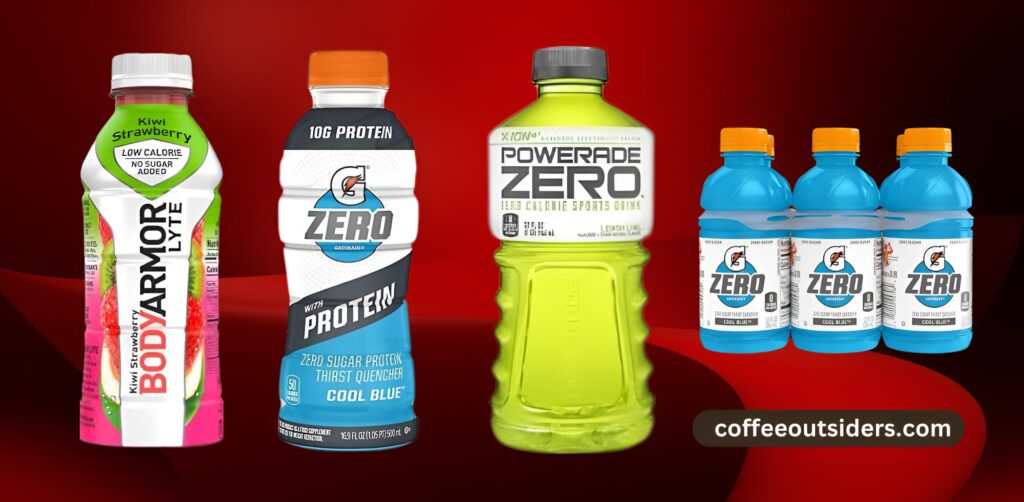
- Powerade is a solid choice for those who prefer less intense flavors. The classic version has a lot of added sugar, so it is not ideal for those on a low-carb diet. This has resulted in its popularity with consumers, as its extensive flavor variety is unmatched by the competition.
- This sugar-free, low-calorie option combines six essential electrolytes with vitamins C, D, and E for added health benefits. Joggo is perfect for anyone who wants their nutrition to be more precise and targeted to their needs.
- Gatorade Thirst Quencher: While not sugar-free, it provides 160mg of sodium and 50mg of potassium per 12fl oz serving, delivering quick electrolyte replenishment for those engaging in high-intensity activities.
- BodyArmor Lyte: A lower-calorie version of the original BodyArmor line, BodyArmor Lyte uses coconut water as a base and offers a natural flavor profile. This drink is a perfect fit for people looking for more plant-based hydration options.
Try a few different options out to find which one tastes best and will help keep you hydrated and happy.
2. Comparing Nutritional Profiles of Alternatives
Below is a comparison of Gatorade Zero and other alternatives based on key nutritional factors per 12fl oz serving:
| Drink | Calories | Sugar (g) | Sodium (mg) | Potassium (mg) | Key Features |
| Gatorade Zero | 0 | 0 | 160 | 50 | Sugar-free, keto-friendly |
| Powerade | 80 | 21 | 150 | 35 | Classic sports drink with sugar |
| Joggo | 5 | 0 | 200 | 70 | Includes vitamins C, D, and E |
| BodyArmor Lyte | 20 | 2 | 40 | 300 | Coconut water base, plant-based |
Our side by side comparison helps to illustrate the nutritional differences, so you can make an informed decision based on your dietary needs and preferences.
For instance, Gatorade Zero suits a ketogenic lifestyle, and BodyArmor Lyte makes an effective natural option that packs a higher potassium punch.
3. Choosing the Right Drink for Your Needs
Choosing the right hydration drink for you comes down to your level of activity and what you like. For moderate-intensity or shorter workouts, a low-calorie option such as Gatorade Zero or Joggo can work.
If you’re sweating it out during long or heavy bouts of exercise, look for drinks that have more potassium. Whatever the reason, BodyArmor Lyte can give you some awesome added perks!
Of course, taste is important. If you’re someone who likes milder flavors, you’ll probably like Powerade better. Those looking for extra vitamins could be attracted to Joggo.
Consider dietary restrictions when choosing your alternative. Reduce or eliminate added sugars and follow a ketogenic diet, if that is part of your requirements.
Importance of Knowing Caffeine Content
Understanding the caffeine content in beverages is essential for making informed choices, especially for those who prioritize hydration and physical performance. That’s because caffeine impacts people differently according to their tolerance levels. Knowing how much caffeine is in your drink gives you the power to make the healthiest choice.
Gatorade Zero, for example, has zero caffeine, so it’s a great choice for those looking to hydrate without the addition of caffeine.
1. Why Caffeine Awareness Matters
Caffeine aside, it’s important to understand the overall health and hydration impact. It’s well known as a stimulant that increases energy and improves concentration. It has a diuretic effect too, from which fluid loss may occur if not accounted for.
For athletes or anyone else participating in physical activity, this means that untracked caffeine consumption may negate hydration strategies. Hydration is a major concern during intense workouts or competitions, and not knowing how much caffeine you are taking could impact peak performance.
Being aware of the amount of caffeine we consume can help minimize potential side effects as well, such as jitters, anxiety, or disrupted sleep patterns. Given that these effects present differently in each individual, knowing one’s own limits becomes absolutely essential.
For example, a person who is more likely to experience restlessness from caffeine may choose to purchase Gatorade Zero, as it is a caffeine-free alternative. By staying aware of all potential sources of caffeine, such as coffee, energy drinks, and even certain foods, you can manage your daily intake effectively and avoid exceeding your tolerance.
Part of knowing your limits goes hand in hand with understanding the cumulative effects of caffeine. If an athlete drinks a caffeinated pre-workout or supplement, adding a caffeine-free option such as Gatorade Zero will help maximize hydration.
This unique combination removes the risk of overstimulation but maintains energy levels. This balance between enjoyment and health is even more key when thinking about long-term health and fitness goals.
2. Implications for Health and Performance
Caffeine enhances athletic performance by increasing concentration and reducing perception of exertion. Excess caffeine can dehydrate or elevate heart rate, undermining its overall efficacy. Athletes are the tightrope walkers who need to strike this delicate balance.
They’re trying to take advantage of the benefits of caffeine without reaping its downsides. Gatorade Zero is formulated specifically for hydration and electrolyte replenishment. Its caffeine-free formula makes it a great choice for strenuous physical exertion and competing.
High caffeine consumption may pose health risks, like high blood pressure or chronic dehydration. By choosing Gatorade Zero, consumers will have a caffeine-free option. This allows them to promote hydration and recovery while alleviating the concern of possible adverse effects.
Gatorade Zero is sugar free, with 0g of sugar and low calories. It champions a holistic approach to health and fitness. Health-conscious consumers increasingly look to their beverages to help them achieve their goals — whether that’s greater endurance, or sustained energy with fewer calories.
Gatorade Zero is a natural fit into those plans, providing a sugar-free, low-calorie option designed for hydration. That balance is important for everyone who wants to get the most out of their caffeine, without overdoing it.
3. Tips to Identify Caffeine-Free Products
Knowing which products are caffeine-free can be daunting, but it doesn’t have to be. Begin by reading ingredient lists and nutritional labels on packaging to look for added sources of caffeine. Because brands are legally required to disclose caffeine content, this info is often listed right on the package.
For instance, Gatorade Zero is transparent about being caffeine-free and is a clear option for anyone looking for stimulant-free hydration. Seek third-party certifications or use clear labeling to identify products made without caffeine.
In addition, some companies go the extra mile to make these products easily identifiable on store shelves by including easily recognizable symbols or text. If you don’t know, ask in-store staff for help finding beverages that fit your needs.
This is especially useful when you’re making comparisons between similar products, like sports drinks with different formulations. Finally, look for brands such as Gatorade Zero that are designed and marketed explicitly for hydration and recovery with no caffeine.
Their clear and honest labeling means no matter what you choose, you’ll always know exactly what you’re drinking. That sort of clarity is key to making informed choices to effectively fuel a healthy and active lifestyle.
Conclusion
Whether you’re looking for a great tasting option to stay hydrated or avoid caffeine entirely, Gatorade Zero is a great choice. With electrolytes and hydration support, it’s a convenient choice for training sessions or everyday life. If you’re trying to cut out caffeine, that’s a nice peace of mind to have knowing this beverage doesn’t get too complicated and complex.
If you want to add some twist to your routine, you’re in luck! There are great caffeine-free alternatives as well, like water with sliced citrus fruits or delicious electrolyte beverages. Taking the time to explore alternatives allows you to find the best tool for your specific needs.
Know what’s in your beverage and why it’s important. So whether it’s Gatorade Zero or something else, the more you know, the more you can choose wisely and keep your health and fitness aspirations moving forward. Hydration is key, so stay hydrated, stay active, and make smart choices that help you stay active.
Frequently Asked Questions
Is Gatorade Zero caffeinated? No, Gatorade Zero does not have caffeine. This refreshing sports drink hydrates you while replenishing lost electrolytes, offering athletes and casual drinkers a flavorful electrolyte drink without caffeine!
Yes, Gatorade Zero is a smart choice for hydration, as it helps replace essential electrolytes lost in sweat during exercise without any sugar or caffeine, making it an ideal electrolyte solution for low-calorie hydration.
For Gatorade Zero, we designed the product to strictly deliver what the athlete needs in hydration and electrolyte replenishment, making it an ideal electrolyte solution. It avoids caffeine to appeal to consumers seeking a stimulant-free sports drink.
Caffeine can lead to jitters, increased heart rate, and dehydration in some individuals. For those sensitive to caffeine, opting for a refreshing sports drink like Gatorade Zero provides a flavorful electrolyte drink without the sugar.
Better options for hydration include Propel, Powerade Zero, or simply plain water. These alternatives provide a flavorful electrolyte drink with or without caffeine, depending on your needs and intensity of activity.
Most beverages today, including popular options like the Gatorade brand, provide caffeine content clearly under the ingredients or nutritional facts section of the label, ensuring quick rehydration without artificial additives.
Understanding the caffeine content can go a long way toward keeping your caffeine consumption in check. Exceeding the recommended amount of caffeine can lead to negative effects, including restlessness and trouble sleeping, especially for individuals sensitive to caffeine, who may prefer electrolyte beverages like Gatorade powder mix for hydration.

